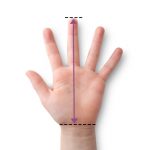There has been a lot of change this year, and in this post we offer tips on how to help children cope with change and anxiety.
We all have moments when we feel overwhelmed by change – adults and children alike. As parents, one of our most difficult and important challenges is teaching our children how to cope with change.
In a fast-paced world where they are learning new things each day, children can sometimes struggle with changes, large and small. From a new sibling to a new school, and from new friends to new footwear, change can take a while to process. Small children, in particular, often haven’t developed the language to express their concerns or the experience of how to deal with change and anxiety.
With a new year on the horizon, Thumbsie have compiled our top tips to help children cope with change and manage anxiety.
- Keep routine
Children thrive on routine and value the safety and security it provides. Something that to an adult may seem a minor change, such as new shoes or a new bed, can worry a child who will be experiencing this for the first time. And of course, big changes in life – a new school or a new sibling, for example – can be especially confusing.
At times when a child is struggling with change it is important to maintain as much routine as possible – bedtime or dinner time routines are a good example. No matter what other changes a child is experiencing, they will feel comforted and secure knowing that most of their schedule remains the same.
- Be calm and consistent
For a parent, it can be hard to watch when your child is struggling to deal with change and anxiety. It can even be tempting to change your own behaviour, or to be more lenient with rules for your child. Wherever possible, you should avoid this. Children crave structure and can tell when their parents are being inconsistent. While your child is learning to process a change in their life, you should try to remain as calm and consistent as possible, providing your child with the reassurance that things are safe and secure at home.
- Talk – and listen
Preparation is key. If possible, give your child advance warning of any upcoming change in your family, surroundings or life. Children will often have lots of questions about change, and parents should be willing not only to explain the changes happening but also to listen to any worries and concerns.
Photographs and pictures can be useful when discussing change. For example, if you are moving house you could show photos of your new home to your child to make them aware of their new surroundings. If your child is due to start a new school, you could show them pictures of the school – or better yet, practice your walk to school together.

- Grieving can be positive
It is natural for a child to be unsure or even upset about a change in their life. By providing a safe environment for your child to express concerns and learn to grieve in a controlled way, you will help them to understand that change can be upsetting but also positive.
Rather than distracting from your child’s emotions, it is important for a parent to listen, show that you understand and remind your child of all the positives in their new situation. Yes, they may miss their old teacher, and that is understandable, but think of all the fun they will have next year with their new teacher!
- A learning opportunity
Learning to cope with change and to deal with feelings of anxiety can be difficult, but ultimately, they are valuable lessons to learn. Each day brings new opportunities for young children. You should encourage your child to see change as an adventure and an opportunity. Over time, their understanding of change and their ability to manage new experiences will grow and they will gain confidence.
The NHS provides some useful advice on coping with anxiety in children and you can also check out our recent blog on dealing with anxiety about Coronavirus.
Recommended by Dentists worldwide
“I love the Thumbsie® – it works every time I recommend it! The Thumbsie® provides a fun way for a dentist or parent to help the child stop sucking because after all, it’s a hard habit to kick." Dr. Kotecha of Glen Dental Buy NowAt Thumbsie, we provide support for children seeking to break a challenging habit: thumb sucking. This can often be a tricky process, and we pride ourselves on helping children – and their families – to cope with this difficult change. We’re with you every step of the way!
For more information, please view our top tips on how to stop thumb sucking.
Please note all comments will need to be approved before appearing on this page. Please respect others when posting.





























Comments